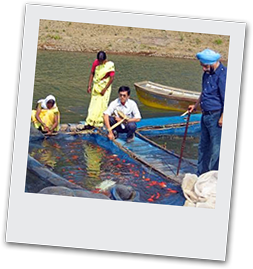Respect as a basis for help

“Are you aware that the people who lived in the forest for centuries, protected it it all this time? They know best how to conserve it, use it and take care of it. ” In her colorful sari, Ms Kusum Karnik -a strong local NGO leader with an academic background- tells about the ancient culture, the traditions and tribal life in rural Maharashtra, India. She tells us with passion how the construction of a large dam disrupted the life of many villages in areas that would be flooded. She tells us about the damage to nature. She tells us how helpless, desperate and hopeless the people felt when they had to move.
Ms Kusum Karnik took up the challenge of turning apathy into engagememt by illiterate tribal farmers to take positive action. “Traditionally we believe that one must respect the people one works with. Vision and mission are not written on a board somewhere in an office, they are discussed. The values we believe in – fraternity, equality, freedom, justice, truth, love of fellow human beings, and valuing physical labor – are often brought up regarding day-to-day matters, thus keeping this spirit alive.”
Based on this philosophy of respect, equity and equality, Ms Karnik founded the Sashwat organization. Sashwat helps displaced communities with concrete actions. With the support of donors she helped to set up small-scale fishing activities in the dam reservoir and improve farming on the remaining cultivatable land. She supported farmers with the paperwork to secure their new land. She helped to educate women and stimulated health care for women and children.
Through all of these efforts, she mobilized a great number of men and women from the village to assist her. Together, they help villagers to help themselves and to help improve the life of the resettled communities. Today, families have new livelihoods and better prospects through education. The remaining forests are being conserved and the ecosystems restored.”
Based on the UNDP case study we retell here the story from the perspective of one of the founders of the Sashwat NGO, who won the Equator Inituiative Prize in 2012. (United Nations Development Programme. 2013. Shashwat, India. Equator Initiative Case Study Series. New York, NY).
